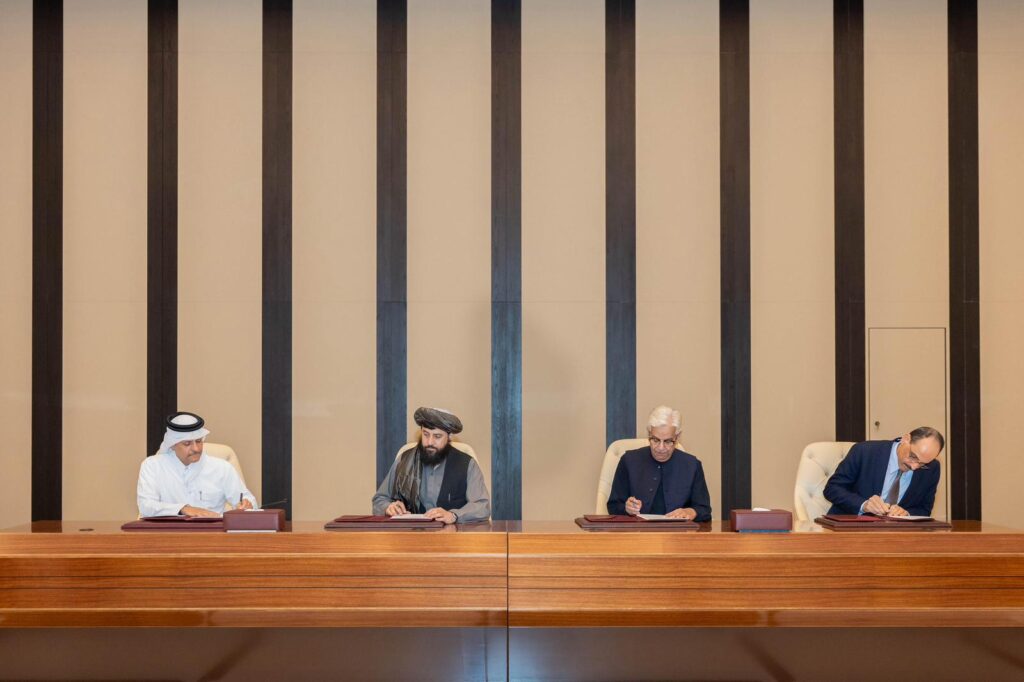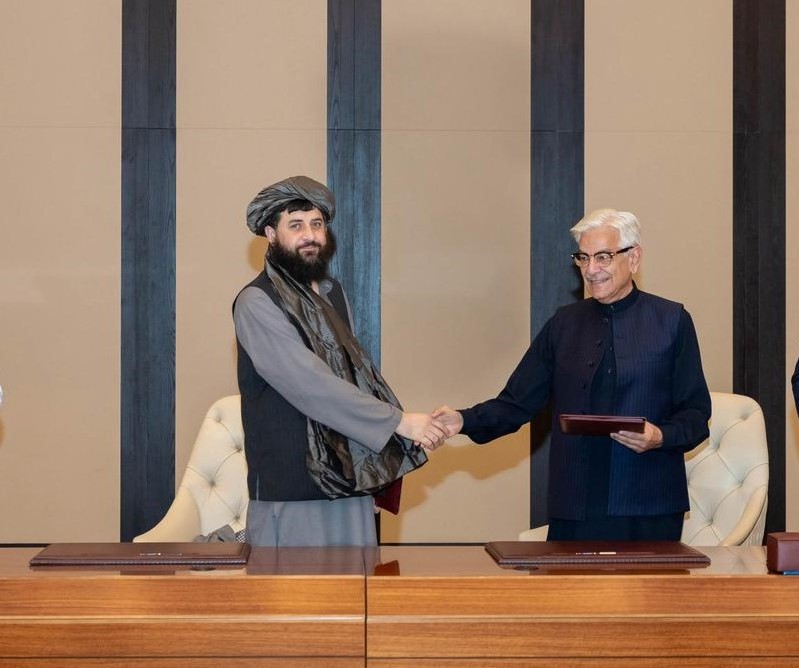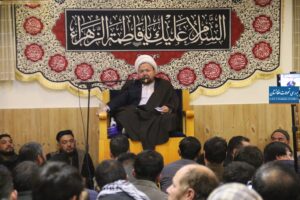Review of Afghanistan developments
Ultimately, following a week of military hostilities and a political crisis involving Afghanistan and Pakistan, a ceasefire agreement was established between the two nations. Negotiations regarding the ceasefire and the establishment of peace were conducted at the level of defense ministers, with the presence of the heads of intelligence services from both countries in Doha, the capital of Qatar. These Negotiations, which were reportedly facilitated by Qatar and Turkey, culminated in the signing of a ceasefire agreement that encompassed the following commitments: “Both parties pledge to refrain from engaging in renewed conflict, to address issues through dialogue, to avoid supporting groups that operate against the Pakistani government, to abstain from attacking critical infrastructure, security forces, civilians, and to persist in negotiations aimed at developing a comprehensive framework to ensure lasting peace between the two nations.”
The social and political ramifications of the battle for the Taliban government
The Taliban administration, currently grappling with a crisis of internal legitimacy, has managed to sway public sentiment and even gain favorable views from political opposition factions as a result of this military engagement with Pakistan. Comprehensive propaganda efforts on social media supporting the Taliban administration have bolstered the morale of its military forces and showcased the internal unity of these factions in their confrontation with Pakistan.
In the realm of international relations, this conflict has positioned the Taliban government as a nation that has suffered an infringement, particularly as it was subsequently established that Noor Wali Mehsud, the head of the Pakistani Taliban, was not eliminated in the Pakistani airstrike targeting Kabul. An audio recording and later a video confirmed that Noor Wali Mehsud was located in the tribal regions of Pakistan. Within this framework, the lack of response from other nations regarding the Taliban government’s assault on Pakistani military installations across the Durand Line not only reflects a form of neutrality and a reluctance to intervene but may also suggest that the Taliban government’s actions against Pakistan were deemed a legitimate response and a rightful act of self-defense.
In accordance with the terms outlined in the ceasefire agreement, the Taliban government has secured a commitment from Pakistan that it will refrain from conducting military operations on Afghan territory, particularly in civilian regions, under the guise of targeting TTP members. In summary, the accomplishments of the Taliban government resulting from this conflict, despite the casualties and losses endured by Afghanistan, were considerable. By fostering nationalist sentiments, the Taliban government succeeded in establishing social unity in Afghanistan to its advantage and garnered a favorable reaction from the international community regarding Pakistan. Furthermore, the Taliban government successfully negotiated a ceasefire agreement with the Pakistani government as an official government, which represents a legitimate step towards the recognition of the Taliban government.

Despite Pakistan’s military superiority during the conflict with the Taliban government and its unprecedented direct assault on Kabul, the outcomes for Pakistan are distinct. The primary issue that has caused some concern for Pakistan over the past four years has been the assaults by opposition factions within the country, particularly the TTP, which asserts its operations are rooted in Afghan territory.
On the other hand, the persistent denial by Taliban leaders regarding the presence of any group on Afghan territory, as well as their assertion that they would not permit any group to utilize Afghan soil against another nation, has rendered Pakistan powerless. In light of the ceasefire agreement’s text and the stipulation that “attacks by groups operating against the Pakistani government will not be supported,” it is first implicitly acknowledged that Afghanistan has indeed supported factions opposing Pakistan. Furthermore, the Taliban administration has pledged that it will no longer permit groups that oppose Pakistan to exist on Afghan soil or conduct operations against Pakistan.
It may even be posited that by initiating this conflict through a strategic and deliberate approach, Pakistan positioned the Taliban in such a way that it could secure an official recognition of support for its opposing factions from Kabul, while simultaneously restricting the Taliban government’s ability to assist its own opposition groups. Regardless, the acquisition of a written assurance regarding the ceasefire agreement by Islamabad could be viewed as a diplomatic triumph for Pakistan.
Related Articles
The role of the India in the Afghanistan-Pakistan conflict
Taliban military operations against Pakistan in 2025
Perspective View on the Ceasefire Agreement between Afghanistan and Pakistan
Despite the content of the ceasefire agreement and the presence of strong and influential mediators working towards a resolution, the likelihood of renewed conflict between the two parties is deemed unlikely; however, when taking into account the primary concern, which is the actions of the TTP, the potential for conflict to arise, albeit not as severe and violent as previously experienced, remains plausible, with the possibility of sporadic, limited, and targeted attacks occurring even in the Afghan capital by Pakistan.
The delicacy of peace and the potential for conflict become more apparent when Pakistan confronts and investigates the underlying causes of any TTP operations on Afghan territory. The likelihood of the TTP ceasing its actions against Pakistan is exceedingly low, which would lead Pakistan to deem itself justified in launching attacks on Afghan territory, executing military operations there as it has done previously. In such circumstances, it is expected that the Taliban government will respond with countermeasures. Nevertheless, a significant distinction exists in that Pakistan, referencing the ceasefire agreement, believes it has the right to target its opposition groups that are documented to be present on Afghan soil, as stipulated in the signed ceasefire agreement.

















